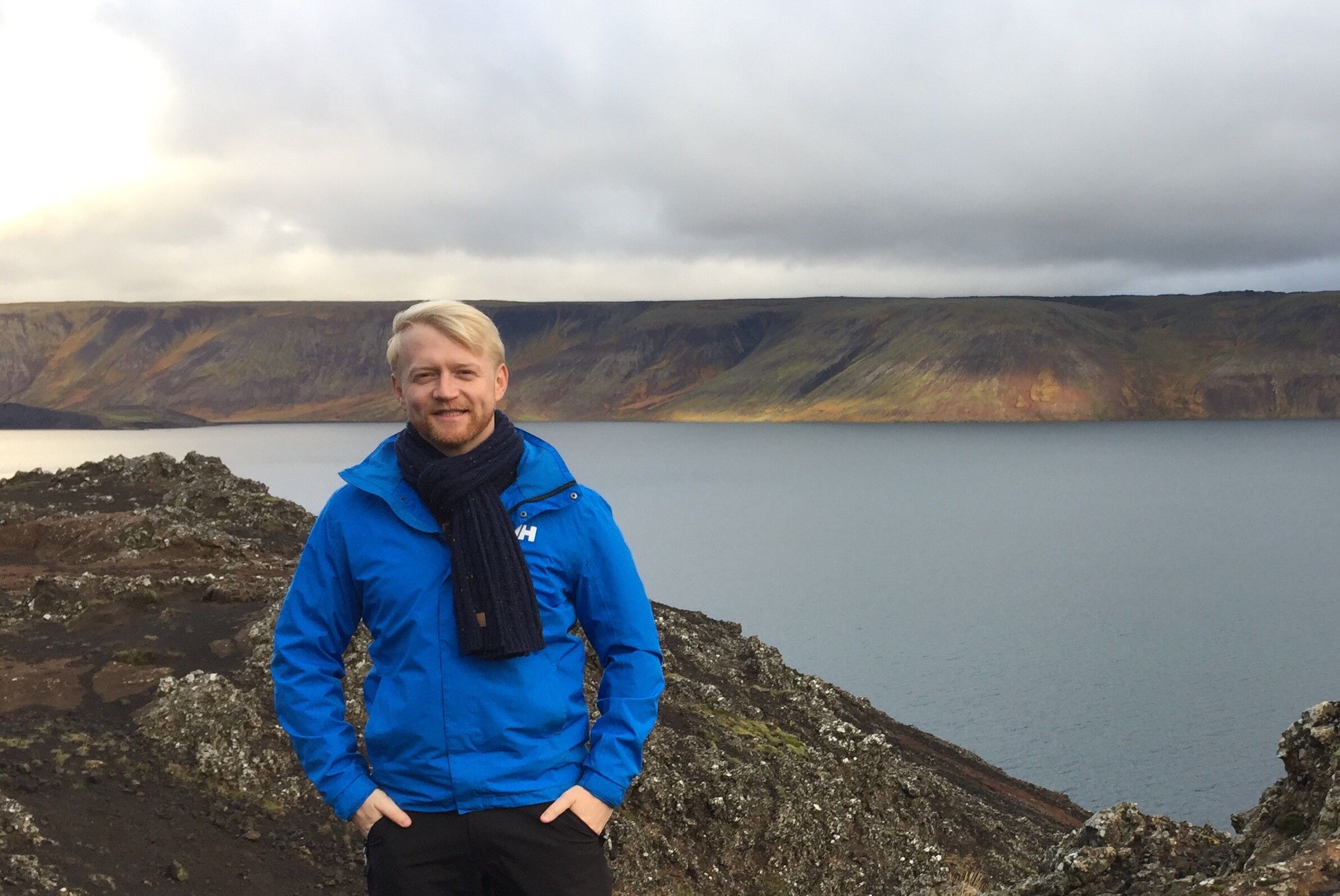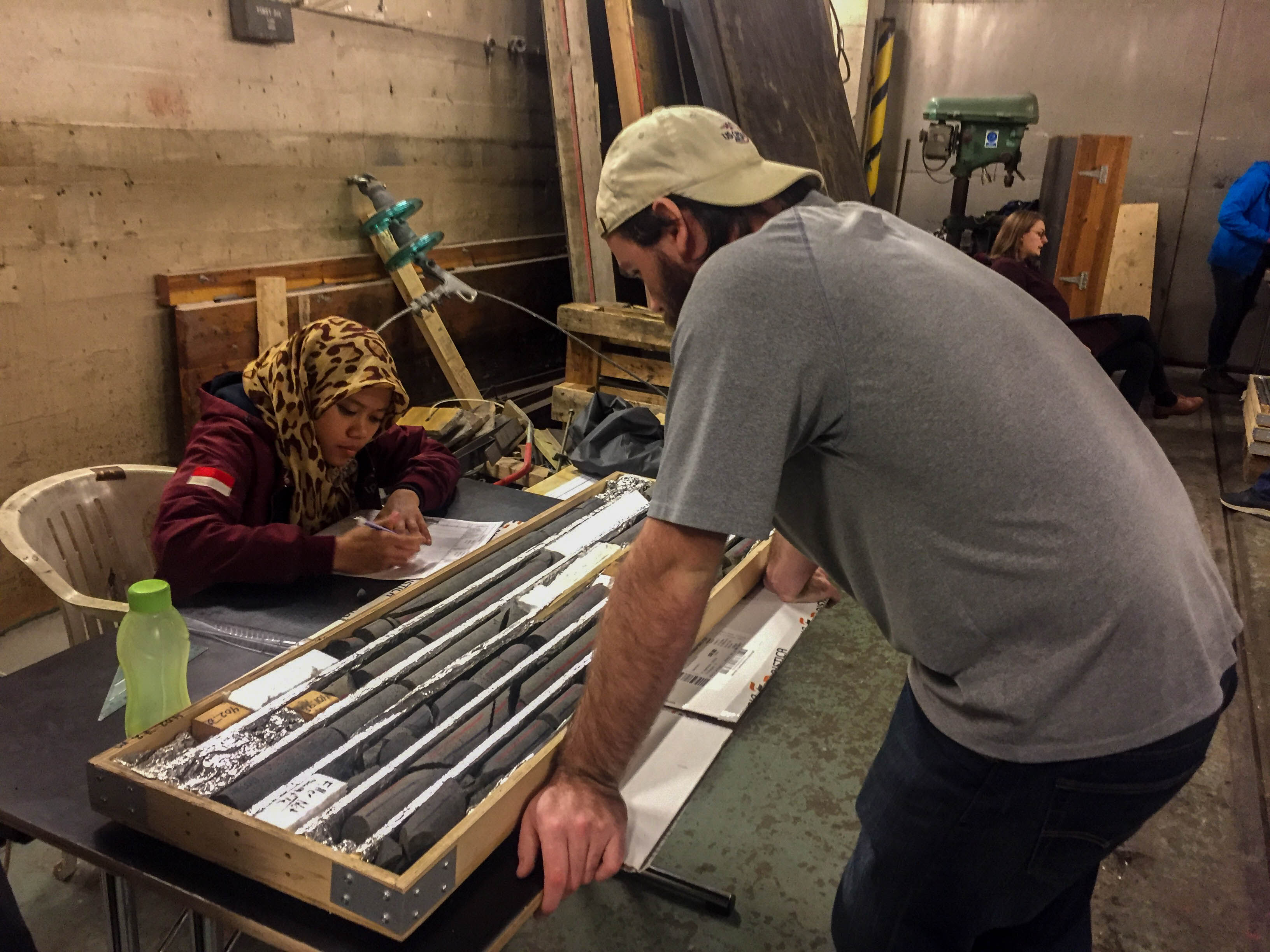New Course: Energy Geology
Thoughts and feedback
REYKJAVIK, October 5 – The Iceland School of Energy is all about constant improvement. This semester the school unveiled their new program structure for the fall semester, including modular courses like Energy Economics, Energy Resources and the all new Energy Geology.
The course is structured as a two week intensive module where students spend three to four hours a day, five days a week learning about the basics of geological resources, the underlying geological processes in formation, how to tap into the resource and how to manage it. Each day involved morning lectures and afternoon practical sessions where students applied what they learned. In order to teach the course, guest lecturer David McNamara flew in from Ireland for the two weeks.

David saw the course as an opportunity to give an introduction to energy geology for students interested in the energy sector that did not have a geological background. Students learned about the geological formation of energy resources and then about what a "geologist's job is" in terms of exploration, resource characterization, drilling and extraction. In particular, the course focused on geothermal and petroleum resources. David explains that,
David goes on to share,Essentially we are teaching the role of geologists to engineers and other non-geology students. It's an overview course meant to encourage cross-discipline understanding and cooperation. Obviously you cannot pack a careers worth of geological knowledge and wisdom into two weeks, but you can hopefully help these students acquire an appreciation of what a geologist does and give them an understanding of the terminology.
Mirroring David McNamara's words are those of Conor Bennett, a first year ISE graduate student who is taking the course. Conor stated,I've never taught students who didn't have at least the basics of geology. This course is pretty spectacular in that in two weeks we go from what a rock is to how you manage and extract a geological resource. It's been a challenge but one that has far reaching consequences. Today, the disconnect exists in industry between geologists and non-geologists. This course is meant to bridge that gap in the following generations and these students have been given good insight. They should be able to leave this course and work with geologists. Understand their language and terminology, and the types of problems that geologists must solve.
When asked what advice he would give to future students, Conor replied urging to,I had never taken a geology course prior to this. My background is in Economics and Environmental Studies. It was interesting to see that the focus was how to use this knowledge in tandem with engineering and why we need to know this material. My favorite part of the course has been the practical side of things. In the mornings we learn from lectures and in the afternoons we apply what we learned. It's a brilliant way to teach because it sticks much better. I've learned more in this class than any other just because of this structure.
Step out of your comfort zone. Geology wasn't something I was necessarily looking forward to learning about but it has been very rewarding. As long as you're willing to learn, people are willing to teach you. Plus, we're all here to learn. Back home, people pursued bachelor's degrees because they feel like they needed to get a job. A masters is something you take on because you want to learn more.
 When asked what David's take home message for the students was, he replied noting that,
When asked what David's take home message for the students was, he replied noting that,Engineers often deal with absolute measures whereas geology can be a bit of an art-form. Our problems are always under-determined and that lack of data makes it difficult to be sure of the whole picture when filling in the gaps. Yet, at the same time, a lot of money rides on these answers that geologists must come up with. These wells cost millions of dollars, each, and are drilled into vastly complex systems. You can't just pick a spot and drill.
With the course ending, David will return to Ireland to explore how fluid flow through rocks is inhibited by mineral deposition and how this can impact reservoirs. David is tackling this problem from a nano-scale, looking at the atomic processes that occur at fluid rock interfaces. The end goal, he says, is to understand why it's happening in order to manage the reservoir and extend the lifetime of wells and reservoirs.
